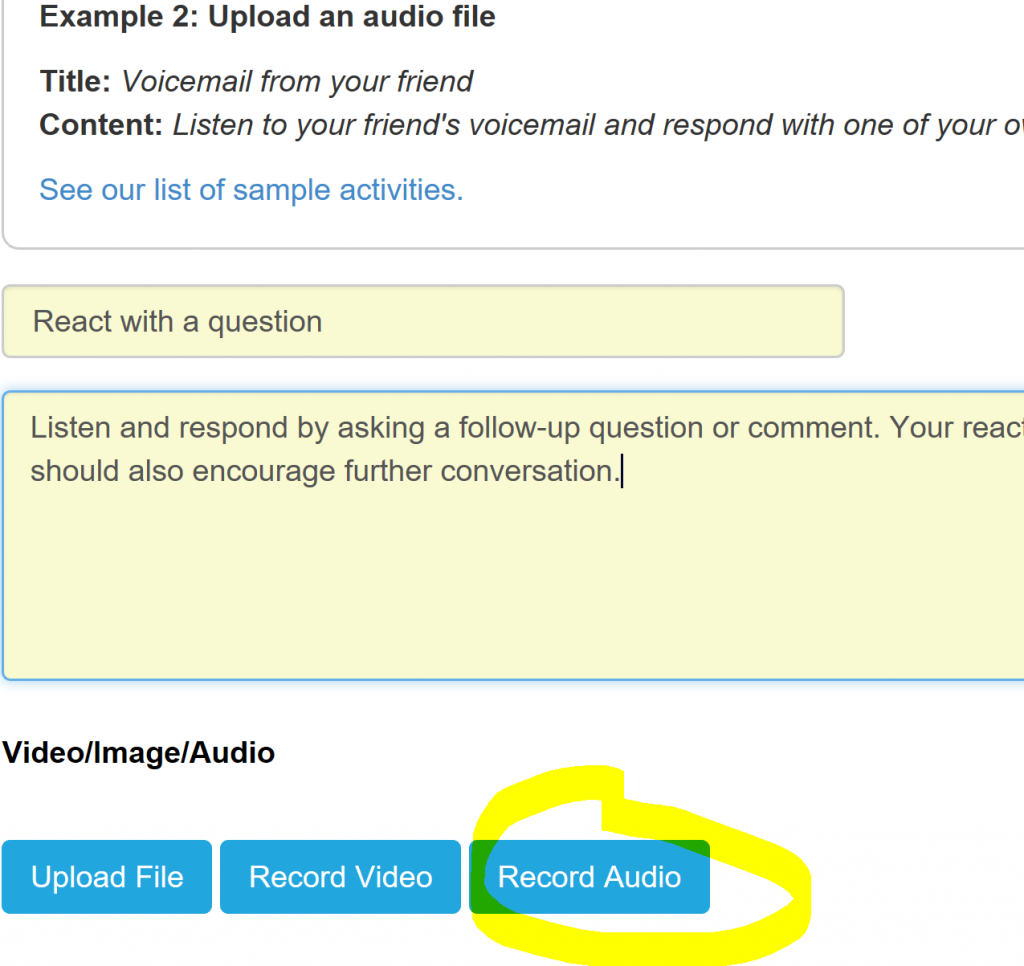Yes, being a good listener is part of being a good conversational partner, even in your native language. When thinking of how to help our students to gradually build their conversation skills, we tend to focus on aspects of the classroom tasks that we design for this purpose. Those elements include the topic (the task should be relevant to encourage more talk), the outcome (authentic or real-life communicative task are more effective), or the student pairings (certain pairs work better than others, we all know that). What we don’t pay much attention to is the communicative strategies that help our students maintain the flow of the conversation or repair communication when it breaks. One such strategy is asking questions.
We can train our students to ask relevant questions that keep the conversation going through listening activities in or outside the classroom. One homework activity that works well for beginning or intermediate levels involves recording a series of thematically-related utterances that students need to react to by asking a question. For example, when covering food vocabulary, we may want students to perform restaurant role plays in the classroom as a way to practice their oral skills and build conversational fluency. We can better prepare students for these role plays by assigning these “respond with a question” exercises in advance.

Respond with a question
Using the audio recording button when creating assessment questions in the Extempore website, record for students five or six utterances (one per question) that are likely to happen during a restaurant role play: “Sorry, we are out of salmon”, “Our special tonight is beef bourguignon”, “I ordered cassoulet, but your brought ratatouille”.

Students are tasked with reacting to these utterances by asking a question that makes sense or another follow-up utterance that would encourage further conversation: “What other fish on the menu can you recommend?”, “How do you cook your beef bourguignon?”, “I’m sorry for my mistake. Can we offer some wine on the house as an apology?”

Successful completion of this task can be assessed by determining whether students’ questions were related to the original utterance and whether they would encourage further conversation. By making this a regular homework practice, students not only build confidence in their ability to participate in a conversation, but they also work on their listening comprehension skills.
Progressing towards higher proficiency
Besides scaffolding the development of conversational skills in the target language, encouraging follow-up questions helps students move towards higher proficiency levels. Asking questions is one of the strategies that the AAPPL rubrics recommend as a way to advance from novice to intermediate listening/speaking proficiency. However, we usually don’t have enough time to make this kind of listening and respond oral activities a part of our regular classroom routine. That’s where listening and speaking practice with the Extempore App can help.


